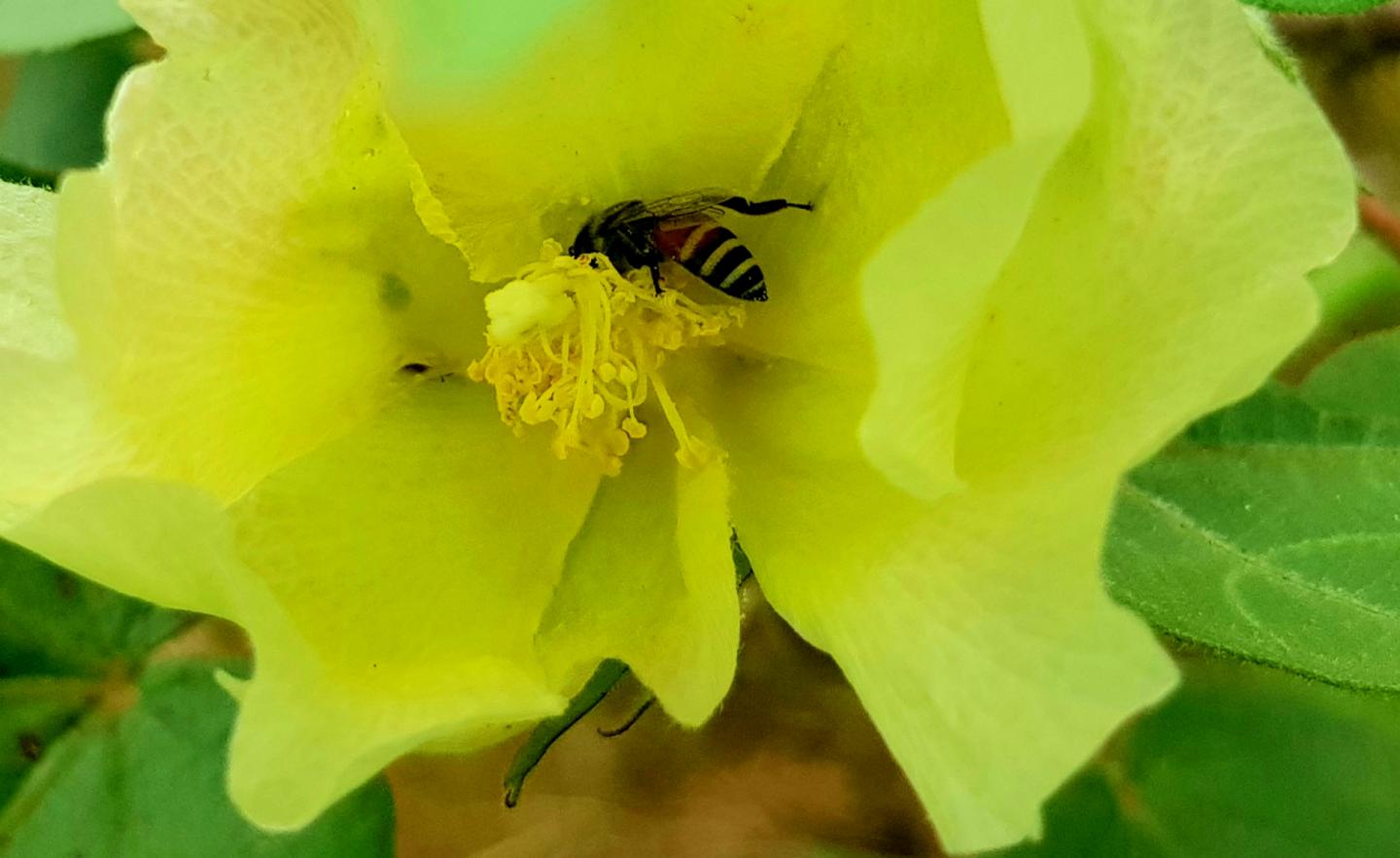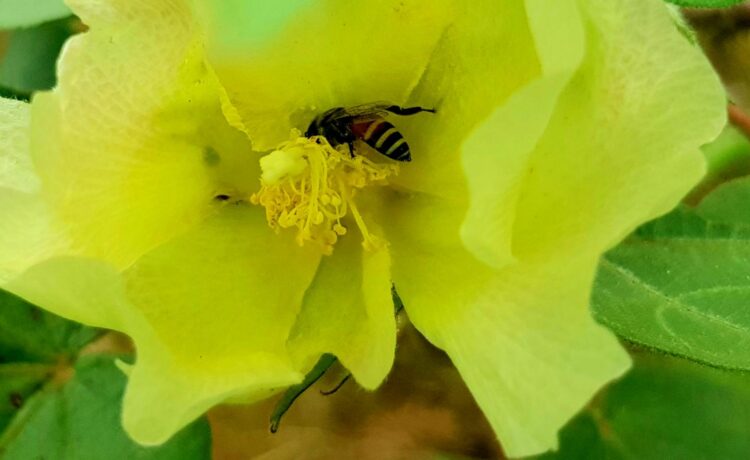First global study of pollinator service stability over time finds fewer fluctuations in diverse communities

Credit: Deepa Senapathi / University of Reading
Fields and farms with more variety of insect pollinator species provide more stable pollination services to nearby crops year on year, according to the first study of its kind.
An international team of scientists led by the University of Reading carried out the first ever study of pollinator species stability over multiple years across locations all around the world, to investigate how to reduce fluctuations in crop pollination over time.
They found areas with diverse communities of pollinators, and areas with stable populations of dominant species, suffered fewer year-to-year fluctuations in pollinator numbers and species richness.
The findings could influence how agricultural land is managed, as it highlights how land managers and farmers need to consider interventions that support diversity in pollinators on their land to provide long-term benefits to food production.
Dr Deepa Senapathi, an ecologist at the University of Reading who led the study, said: “Most previous research into pollinator stability has focused on space, not time. However, year-to-year variations in pollination services cause boom and bust cycles in crop harvests, which can have a damaging impact on agriculture and livelihoods globally.
“Stable and consistent pollination services are therefore important in underpinning businesses and livelihoods, as well as providing a reliable supply of food for retailers and consumers.
“This study has revealed that the secret to consistent crop harvests could be to encourage pollinator diversity on or near farmland. If we want pollinators to help us, first we need to help them, through land management decisions that preserve and increase the number of insect pollinator species.”
Pollination by insects supports the reproduction of at least 78% of wild plants, while contributing to the pollination of 75% of major crops globally. However, wild insect pollinators are declining in areas of north-west Europe and North America where these crops are widely grown, making understanding how their populations change over time, and the impacts of this, increasingly important.
In the new study, the researchers collected wild pollinator data from hundreds of field sites in 12 different countries across six continents over multiple years.
They studied the populations of pollinating insects, such as bees, hoverflies, butterflies, and beetles, in the vicinity of 21 different crop species to explore influences on their stability over time. Their findings are published in the journal Proceedings of the Royal Society B.
Previous studies have shown high pollinator diversity increases fruit and seeds in wild plants, while low diversity affects population stability across landscapes and between seasons. However, the new study is the first to consider how this affects stability over multiple years in locations around the world.
In intensive farming systems where there may be a reduced diversity of pollinators, the research showed that protecting the dominant species there – potentially using managed pollinators to some extent – was also effective in providing long-term stability in pollination.
Land management techniques currently used to boost biodiversity include wildflower areas in and near arable habitats, and crop rotations that allow different species to thrive. Further research will be required to determine which methods work best in different locations.
###
Media Contact
Pete Bryant
[email protected]
Related Journal Article
http://dx.





